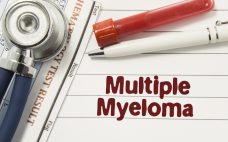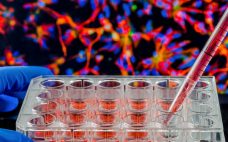The draft guidance advises industry to minimize differences between a biosimilar and its reference biologic including in the choice of expression system and manufacturing process. The US Food and Drug Administration (FDA) has been active in encouraging biosimilar development of late, publishing its long-awaited interchangeability guidance earlier this month. In its latest push the Agency has issued draft guidance entitled: âDevelopment of Therapeutic Protein Biosimilars: Comparative Analytical Assessment and Other Quality-Related Considerations Guidance for Industry.â The document makes recommendations on…

Therapeutic Class
Off-the-shelf CAR-T a âgamechangerâ for multiple myeloma, says Allogene
Allogene expects manufacturing specifications to be a focus of IND reviews as it looks to bring an off-the-shelf CAR-T therapy for multiple myeloma through the clinic. Chimeric antigen receptor (CAR) T-cell therapies have been described as âone of the newest, emerging weapons in the fightâ against multiple myeloma, a cancer affecting around 300,000 Americans every year. Some of the candidates in the clinic for multiple myeloma include Bluebird and Celgeneâs BB21217, Celgeneâs JCARH125 and Janssen/Legend Biotechâs LCAR-B38M, but these â…
Cryoport acquires Cryogene for $20.5m, adds Texas biostorage site
The combination of cold-chain logistics and biostorage places Cryoport in good stead for the arrival of allogeneic cell therapies, an analyst says. Cryogeneâs proximity to Lonzaâs Houston site is also a boon. Cryoport, a provider of temperature-controlled logistics solutions specifically in the cell and gene therapy space, paid $20.5 million (â¬18.3 million) in cash for Houston, Texas-based biostorage and biobanking firm Cryogene. Cryogene brings a 21,000 square-foot biostorage facility â which specializes storing biological specimens, materials and samples â to…
ElevateBio proposes centralized model for cell & gene startups
Neither a CDMO nor an end-user, ElevateBio is looking to change the paradigm in cell and gene therapy development through itâs a centralized R&D and manufacturing model. Recently launched through a $150 million (â¬134 million) Series A financing, ElevateBio intends to create and grow a portfolio of cell and gene therapy companies using shared expertise and facilities through its R&D, process development and cGMP manufacturing subsidiary Basecamp. âBaseCamp is not a CDMO [contract development and manufacturing organization],â ElevateBioâs CEO David…
MilliporeSigma and Thermo contribute to Biolifeâs âblowoutâ Q1
Distributors STEMCELL Technologies and VWR also cited as sales of Biolife Solutionsâs bio-preservation media and automated thawing products increased 51% year-on-year. For the first quarter 2019, Biolife, which makes and supplies biopreservation media and automated cell thawing media devices for cell and gene therapies, reported record revenues of $5.8 million (â¬5.2 million). âDead cells donât cure cancer, and the combined therapeutic, and economic risks our customers are facing should broaden use of our products as a best practice in the…
Pfenex ready to play in next wave smaller biologics
As industry looks to smaller sized proteins and engineered scaffolds, Pfenex believes its expression technology will make it a significant player in the space. For its first quarter 2019, Pfenex reported a 177% jump in revenues year-on-year to $10.4 million (â¬9.2 million), attributed to milestone payments and recognition of deferred revenues from its PF708 partners, and increased sales of its CRM197 product. Lead program PF708 is a recombinant protein form of parathyroid hormone with a PDUFA date of October 7.…
Alnylam: âOnpattro will springboard us into a global biopharma firmâ
Alnylam says it is on course to becoming âa global multiproduct commercial biopharma companyâ by 2020 as sales of its messenger RNA interference therapeutic Onpattro (patisiran) begin to ramp-up. Alnylam Pharmaceuticals made history in August 2018 when Onpattro (patisiran), its product for the polyneuropathy of hereditary transthyretin-mediated (hATTR) amyloidosis, became the first small interfering ribonucleic acid (siRNA) treatment to be approved by the US Food and Drug Administration (FDA). Reporting its first quarter 2019 financials, the firm described the milestone…
Buoyed by CGT growth, Bio-Techne plans plant to supply $200m of reagents
Bio-Techne will invest $40 million to construct a GMP facility in Minneapolis expected to feed the growing demand for reagents in the cell and gene therapy space. The life sciences services and consumables firm reported a 12% growth in sales year-on-year in its third quarter FY2019 within its Protein Sciences segment. The segment â which supplies proteins such as cytokines and growth factors, immunoassays, antibodies and reagents to the biopharma industry â pulled in $138 million in the quarter. Its…
Gilead lets Kite fly solo to compete in competitive CAR-T space
Giving cell therapy unit Kite autonomy will âfoster agility, innovation and entrepreneurialism,â says recently appointed Gilead CEO Daniel OâDay. Gilead Sciences entered into the advanced therapy space in August 2017 through the $11.9 billion (â¬10.6 billion) acquisition of Kite. Just weeks later, the firm saw regulatory success with Yescarta (axicabtagene ciloleucel), which became the second chimeric antigen receptor (CAR) T-cell therapy to be commercialized in the US. Close to two years on, the firm has announced it intends to run…
Breathing space: Inhalable biologics interest prompts Intertek expansion
Interest in inhaled biologics is increasing says Intertek, which has announced plans to expand its testing facility in Melbourn, near Cambridge. Intertek will double capacity with a new 20,000 square-foot lab kitted out with technologies use to assess inhaled and nasal formulations of large molecule drugs. It also plans to hire 100 employees over the next four years. âAs companies are increasingly looking at biologics for non-invasive delivery platforms like inhaled and nasal, there is expected to be an increased…










